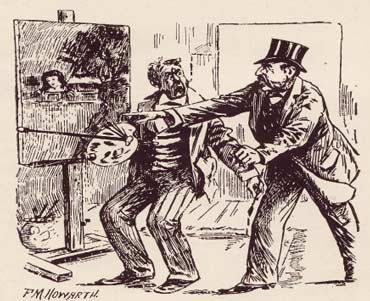Topics:
Search for topics or resources
Enter your search below and hit enter or click the search icon.
November 14th, 2018 | 2 min read

Helen Andrews is at The Hedgehog Review with a review of a book on Anthony Comstock and censorship, subtly calling for a new Comstock for our brave new world of pornography:
The problem of pornography has never been worse than it is right now. If that sounds like an exaggeration, consider: Online streaming porn is video, rather than text or image, which makes it categorically more seductive. It is not geographically restricted to seedy parts of town but accessible anywhere with an Internet connection, by anyone of any age. Much of it is free. Barriers to entry on the supply side are nil. The flood of content over the last decade means that producers have to compete for eyeballs, and because they can’t compete on price, the easiest way to distinguish their product is by going to further and further extremes in the content itself. Technology and social change have combined to push pornography to new frontiers: More of it is being produced, and what gets produced is more depraved.
It is baffling that this unprecedented state of affairs has not called forth a twenty-first-century Comstock, but then, the original Anthony Comstock, the antivice crusader best known for lending his name to a 1873 law banning distribution of obscene material through the mail, is held in low regard. His undeserved reputation is the result of a long line of hostile treatments by his ideological opponents, of which Lust on Trial is the most recent.
Helen’s absolutely right, and so it is discouraging to see this article about the more recent history of prosecuting obscenity (or the lack thereof) in Politico. Elizabeth Nolan Brown offers a counterpoint here.
Given how much bandwidth is taken up within conservative Christian circles about the destructiveness of pornography in the lives of Christians of all ages and how much effort is expended in youth groups, accountability groups, and elder boards to deal with pornography — why don’t Christians just advocate government restrictions on it? Not an all-out, burn-the-servers ban — in the end, I don’t think that would be particularly effective in either making porn inaccessible to people or making the harms of the industry any less destructive. As bad as pornography is, I don’t think that the social-scientific evidence is there is that it affects behavior enough to be worth a total battle for an absolute ban.
Rather, just put all pornographic material on .xxx domains and require that people who want to access those domains pay $50/year. Slap everyone who doesn’t comply with a fine. There’s practically no chance a kid would unintentionally stumble on it, and it’s that much harder for teenagers or adults who are feeling tempted. It doesn’t obviate the need for self-discipline or accountability, but it sure helps to create an environment where virtue can flourish. The multi-billion-dollar industry will moan about free speech, but a little fee is hardly a First Amendment violation. What’s the harm in trying?
Matthew Loftus teaches and practices Family Medicine in Baltimore and East Africa. His work has been featured in Christianity Today, Comment, & First Things and he is a regular contributor for Christ and Pop Culture. You can learn more about his work and writing at www.MatthewAndMaggie.org
Topics: